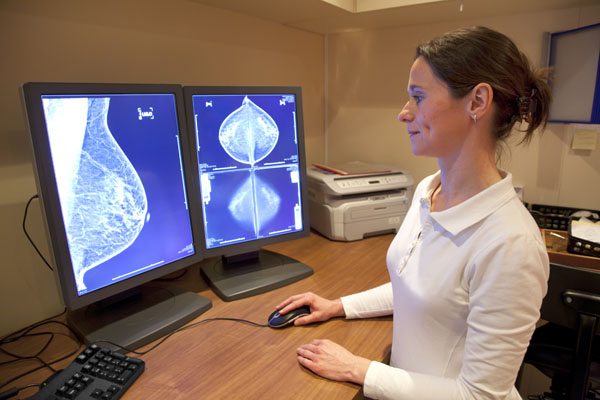Pharmaceutical company Novartis has received a coveted US Food and Drug Administration (FDA) breakthrough therapy designation for its breast cancer drug, LEE011 (ribociclib). The drug is to be used in combination with letrozole to treat hormone receptor positive, human epidermal growth factor receptor 2-negative (HR+/HER2-) metastatic or advanced-stage breast cancer.
The company’s positive results from a Phase III clinical trial of the drug – known as MONALEESA-2 – were the driving factor behind the FDA’s decision. The trial involved postmenopausal women who received LEE011 in combination with letrozole as a first-line treatment for their breast cancer.
LEE011 belongs to a new class of drugs known as selective cyclin dependent kinase inhibitors, which could help slow cancer progression. The drug inhibits two proteins called cyclin dependent kinase 4 and 6 (CDK4/6), which promote cancer cell growth and division when overexpressed in cells.
The drug was successful in the MONALEESA-2 clinical trial at meeting its primary endpoint, which was to improve progression-free survival at an interim timepoint. The company says they plan to release the full data from this study at an upcoming medical conference.
“Despite advancements in treatment, an estimated 40,000 individuals in the United States die each year from advanced breast cancer,” said Dr. Alessandro Riva, Global Head, Oncology Development and Medical Affairs, Novartis Oncology. “This designation shows the potential of LEE011, and we look forward to close collaboration with the FDA and the advanced breast cancer community to provide a new treatment option for women living with HR+/HER2- advanced breast cancer as quickly as possible.”
Estimates suggest that nearly 33 percent of patients diagnosed with early-stage breast cancer will eventually develop a metastatic form of the disease. Breast cancer becomes metastatic once the disease spreads to other parts of the body – such as the liver, bones or brain – and is the most serious form of cancer.
Survival rates drop dramatically when breast cancer moves into the metastatic phase, highlighting the need for more effective treatments for the disease. Patients with stage three breast cancer have a five-year relative survival rate of 72 percent, however this number falls to 22 percent when the cancer progresses into stage four metastatic disease.
Novartis has already planned additional studies to further test the efficacy of LEE011. Both MONALEESA-3 and MONALEESA-7 are fully-enrolled clinical trials focusing on other drug combinations in breast cancer patients.












Join or login to leave a comment
JOIN LOGIN